NICE Academy in Pristina from September 7-10, 2022
"Deep-Human Competences, Career Development and Counselling"
From September 6-10, 2022, ECADOC and NICE will organize a combined ECADOC Summer School & NICE Academy in Pristina, Kosovo, hosted by the Universum College. The academy will begin on the late afternoon of September 7, later than the summer school. Selected activities from September 7 to 10 will be combined for participants of both events. This page provides information on the NICE Academy (Sept. 7-10). To find out more about the ECADOC Summer School, please visit the ECADOC Website.
News:
- Registration is open: https://www.conftool.com/nice-academy-2022/
- Early-bird registration is open until July 22
- Would you like to contribute? You can still submit proposals for poster presentations and demonstrations of tools and methods for the Methods & Research Market (until July 31, 2022). Check the call for contributions here.
- Information on venue and hotels available now, as well as tourist information on Kosovo.
Theme of the Academy
In recent years, a growing awareness has been emerging for the importance of relational and emotional competences for a good life. "Deep human" competences like empathy, emotion regulation, complex skills for communication, negotiation, cooperation, and interpersonal conflict-solving bear many things in common - as multi-faceted as they are: They are embodied and tacit, they do not only affect our cognitive sense-making of situations and events in our lives. Instead, they go deeper and affect the ways in which we come to experience and perceive situations in the first place - automatically and involuntarily. Despite the many ways in which they are rational and can draw on knowlege, they are also deeply emotional. For example, an empathic counsellor is not only characterized by the way that she can explain what a client is experiencing. To some degree she also feels her client's experience.
Deep-human competences, also known as social and emotional skills, are widely recognized as the foundation of a good counselling practice. In the EU-funded project STRENGTh, this point has been stressed by hundreds of experienced practitioners from more than 20 countries (Katsarov, 2021). NICE stresses this point in highlighting the importance of professional relationships, an empathic understanding of clients' needs, and collaborative skills in the European Competence Standards (NICE, 2016). However, only very little research has been dedicated to the question, how to best promote these deep-human competences in career practitioners, how to assess them, etc. At this year's NICE Academy, we hope to feature workshops and lectures on the role of these diverse abilities for the practice of career guidance and counselling, on strategies and methods for their promotion and assessment.
Deep-human competences also appear to be highly relevant for people's career development, however. The relevance of social and emotional learning for a good life is increasingly accepted and influential organizations have been engaged in their promotion for decades (e.g., CASEL). However, the promotion of these abilities for career development may not have been explored in sufficient depth until now. To clarify relevant questions and promote good practices, Scott Solberg, Lea Ferrari, and Chong Park have been leading an International Research Network since 2019. Colleagues from many continents come together in this network, and are engaged in cross-cultural research into the role of social and emotional competences for career development, and the question how career guidance and counselling can help to promote deep-human competences. At the academy, we hope to feature diverse workshops and keynotes on the role of deep-human competences for career development, and approaches for their promotion in clients of different ages.
Rough Programme
Registration Fee
The registration fee covers food and drinks at the academy, the programme, and all learning materials. Participation at the gala dinner and cultural activities may come with additional fees. Participants are expected to organise and pay for their travel and accommodation autonomously.
Early-Bird (until July 31) | Standard | |
Regular | € 225,00 | € 250,00 |
Founders and Lecturers (1) | € 200,00 | € 225,00 |
Special Rate (2) | € 100,00 | € 100,00 |
Online Only (3) | € 50,00 | € 50,00 |
(1) Founders are registered supporters of the NICE Foundation, either individuals or representatives of institutional founders (e.g., universities or professional associations). For an overview of the relevant bodies, please consult http://www.nice-network.eu/founders/
(2) The special discount is available for participants with very low budgets, e.g., unemployed students or practitioners with relatively low incomes. Please request a special discount via email to the organisers.
(3) Some of the academy activities will also take place online, including keynote lectures and a selection of presentations and workshops. Active participation of online participants will be moderated. In the unlikely event that the academy cannot take place physically, the full event will take place online.
Scientific Committee
Carine Bacanlı, Gazi Üniversitesi, Gazi Eğitim Fakültesi (Turkey)
Daisy Bao, University of Edinburgh (United Kingdom)
Sally-Anne Barnes, University of Warwick (United Kingdom)
Emma Bolger, University of the West of Scotland (United Kingdom)
David Bourne, Euro-CDP-Lab (France)
Lea Ferrari, University of Padua (Italy)
Ilze Jansone, State Education Development Agency (Latvia)
Nurten Karacan Ozdemir, Hacettepe University (Turkey)
Jaana Kettunen, Finnish Institute for Educational Research, University of Jyväskylä (Finland)
Shahinaz Khalil, career guidance freelance expert (Germany)
Monika Kil, Universität für Weiterbildung Krems (Austria)
Kalliopi Kounenou, Department of Education, School of Pedagogical & Technological Education (Aspete), Greece
Abel Merino Orozko, Universidad de Burgos (Spain)
Carine Mira, CY University (France)
Rebeca Murias, University of Santiago de Compostela (USC), Spain
Etim Okon, TeachersAfrica (Nigeria)
Jacques Pouyaud, University of Bordeaux (France)
Soledad Romero-Rodríguez, Universidad de Sevilla (Spain)
Teresa Maria Sgaramella, University of Padova (Italy)
Laurent Sovet, Université de Paris (France)
Peter Weber, HdBA Mannheim (Germany)
Tirza Willner, Hebrew University of Jerusalem (Israel)
Julia Yates, City, University of London (United Kingdom)
Sponsors
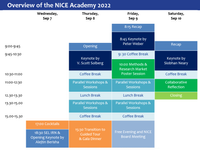

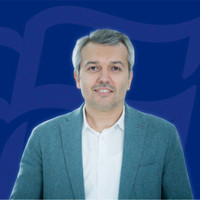
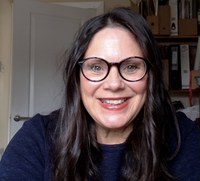

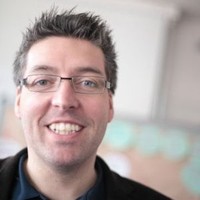
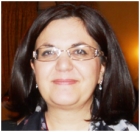

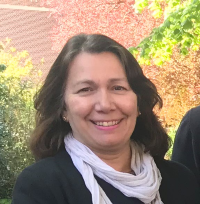

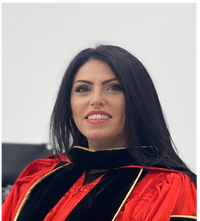
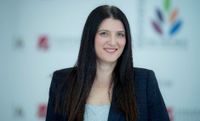
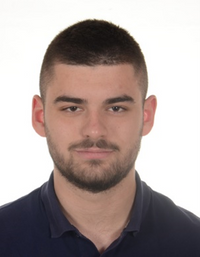

.jpg/picture-200?_=180f2c96932)
